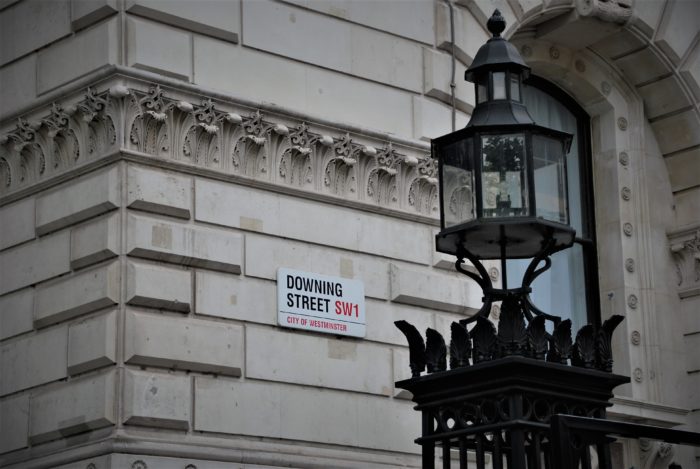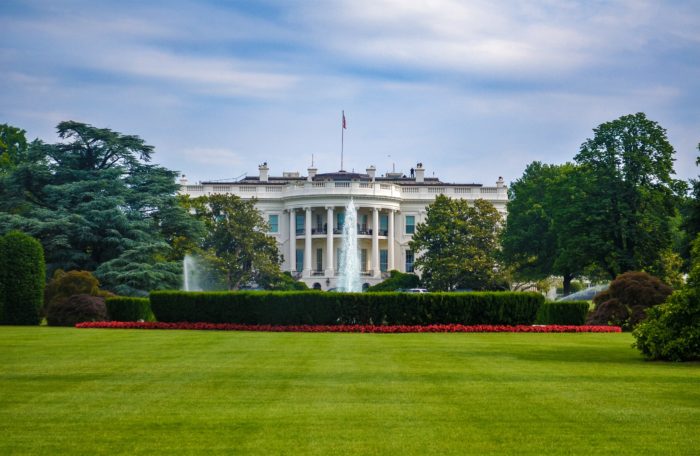Digital World
Britain’s AI Power Play
In the 1980s British sitcom Yes Minister, civil servant Sir Humphrey Appleby remarks that diplomacy is about surviving until the next century, whereas politics is about surviving until Friday afternoon. Sir Appleby’s wry observation rings especially true today, with U.K. watchers caught up in the “politics” of no deal Brexit scenarios, Boris Johnson’s ascension to Prime Minister, and the sudden ouster of the U.K.’s Ambassador to Washington, Sir Kim Darroch.
But the obsession with “politics” means scant attention is paid to the U.K.’s “diplomacy,” its plan to survive – and perhaps thrive – over the next century. As the U.K. confronts dire prognostications of post-Brexit economic stagnation and diminished international standing, it maintains a formidable ace in the hole: its bourgeoning artificial intelligence (AI) ecosystem. Europe’s reigning AI-powerhouse, the U.K. is doubling down on the emerging technology to safeguard alliances and economic prosperity. It is also intertwining AI into its international outreach, seeking to open a new front of cooperation with post-Brexit partners, including the United States.

AI Advantage, Britannia
AI is a set of general purpose technologies that will create – and transform – many industries. Once a state possesses advanced AI, it can apply the technology to supercharge its industrial and economic competitiveness. The proliferation of state-sponsored AI strategies from China to Finland illustrates the economic stakes, but also the geopolitical imperative of incubating an AI-industry. In the long run, AI could be employed to establish geopolitical primacy over international rivals, much as the U.K. has done with banking and insurance.
In a striking counternarrative to the doom and gloom associated with Brexit, a recent report by the McKinsey Global Institute estimated that AI could boost the U.K.’s economy 22 percent by 2030. Another report by PricewaterhouseCoopers found AI could create more jobs in the U.K. (7.2 million) than it destroys (7 million) over the next twenty years.
These lofty macroeconomic projections are backed by the U.K.’s AI scene. Home to around 1,000 AI companies, 600 investors, and 35 tech hubs and research centers, the U.K. has an established lead over its continental neighbors. The country is a magnet for global and European AI talent, with 62 percent of investors voicing support for London as the best European location for AI brainpower. In 2018, U.K. firms attracted 1.8 times more venture capital (VC) investment than France, and 1.6 times more than Germany, and AI developers in London saw a venture capital funding increase of more than 200 percent. London remains Europe’s largest tech-hub, home to nearly 350,000 developers.
The U.K’s AI scene is fueled by robust public and private investment in AI education and research. In February 2019, the government announced it would contribute $144 million to train 1,200 PhD and 200 master’s students. And, in June 2019, Stephen Schwarzman, co-founder of Blackstone Group, donated $188 million to the University of Oxford to, in part, build an Institute for Ethics in AI. In a video interview publicizing the donation, Schwarzman played down the short-term threat posed by Brexit, stating, “what’s important is we set up the right structure for 100 years, 200 years.”
AI Survival Skills
The short-term tumult precipitated by Brexit has paradoxically helped the U.K. sharpen its long-term AI survival skills. First, the U.K. has sought to head off Brexit AI-brain drain to Berlin, Paris, and even Silicon Valley by incorporating AI into its industrial strategy and allocating resources to shore up (and deepen) its AI moat. In April 2018, the government announced a $1.3 billion joint investment through the AI Sector Deal, which touts promises by Japanese VC Global Brain and Canada-based Chrysalix to locate European headquarters in the U.K. The AI Sector Deal also doubles – to 2,000 yearly – the number of Tier 1 visas for “exceptional” AI talent.
Second, the U.K. has created indigenous regulatory structures to guide the development of AI. The U.K.’s Centre for Data Ethics and Innovation (CDEI) has developed its own research and policy proposals alongside those being drafted by the European Commission’s High-Level Expert Group on Artificial Intelligence (HLEG). Strikingly, CDEI’s two-year strategy released in March 2019 notes the need for “global collaboration” on a wide range of AI-issues, without mentioning the European Union or the HLEG once.
In blazing its own path on ethics and regulation, the U.K. is clearly attempting to strike a “third way” between AI frameworks promulgated by the EU, and more laissez-faire models adopted by China and the U.S. A concrete example of this strategy is the U.K.’s development and piloting of “Data Trusts,” which aim to facilitate data sharing between disparate public, private, and nonprofit users. A March 2019 report makes the case for Data Trusts’ malleability and global applicability through their use of existing legal structures and governance by independent trustees.

Whitehall Meets White House: AI Edition
As it reinforces its AI capabilities at home, the U.K.’s diplomatic apparatus has been busy cementing its AI outreach in Washington. Looking beyond the “politics” of the recent spat between President Trump and Sir Kim Darroch, the U.K.’s diplomatic overtures have largely been welcomed by President Trump, who famously branded the EU a “foe” while on a state visit to the U.K. The U.K.’s bilateral cooperation with Washington has unfolded along two tracks: high-level political agreements and defense cooperation.
In what was billed by the White House as the first U.S.–U.K. agreement since the Brexit referendum, in September 2017, President Trump signed a science and technology agreement with the U.K. intended to cover “emerging technologies like artificial intelligence.” And, in February 2019, President Trump launched The American AI Initiative, which outlines guidelines for international collaboration on AI standards and research and development. Finally, at a December 2018 AI conference held at the U.K. embassy in Washington, panelists from both governments centered their remarks on how the two countries could collaborate on the rollout of Data Trusts and the development of ethical AI frameworks.
On defense, the U.S. and U.K. launched an AI Lab at the first ever joint defense innovation board meeting in May 2018. The launch emphasizes the importance of U.S. –U.K. collaboration in harnessing new technologies in the face of global threats. The launch of the AI Lab was followed by a joint U.S. Department of Defense and U.K. Ministry of Defence announcement of a bilateral research initiative to support collaboration between research institutions in the U.S. and U.K.
From “Britain Trump” To The AI “Golden Age”
As the U.K. hurtles toward its self-imposed deadline to leave the EU, it will need to rapidly pivot away from the “politics” of the past and toward serious “diplomacy” aimed at securing its future. With Prime Minister Boris Johnson now inhabiting Number 10, both he and President Trump have leaned on the “politics” of personality to patch up relations. Johnson has distanced himself from past criticism of Trump while refusing to back Sir Kim Darroch in his duel with the American President. For his part, President Trump has signaled a warming of relations by dubbing the newly minted Prime Minister “Britain Trump”, referring to him as “a friend of mine”, and nominating Nigel Farage as the U.K.’s man in Washington.
With Prime Minister Johnson facing the specter of an October 31 exit from the EU, and with President Trump looking to lock in deals before the 2020 campaign season kicks off, both leaders have set the stage for long-term “diplomacy.” The U.K.’s under-the-radar AI maneuvering provides evidence of a well-conceived-of long-term strategy aimed at cornering a slice of the knowledge economy – and the geopolitical gravitas that will flow from it. Judging by the robust track record of bilateral cooperation since 2017, AI is a potentially unifying policy domain for the U.S. and U.K. But for now, it remains to be seen if politics or diplomacy will rule the day. At the very least, the U.K.’s prominent positioning of AI as a diplomatic tool is an experiment that should be watched closely by politicians – and diplomats –everywhere.